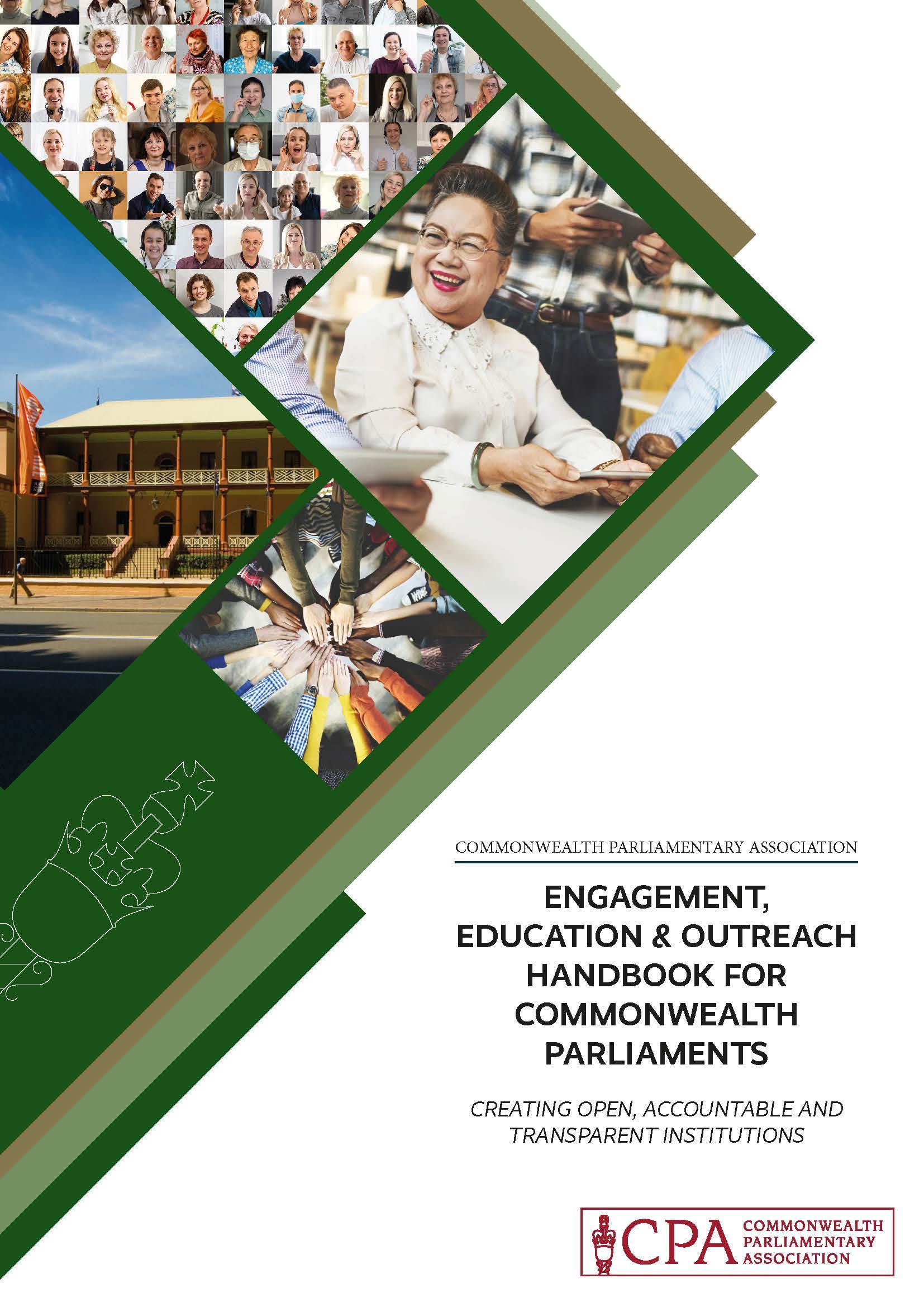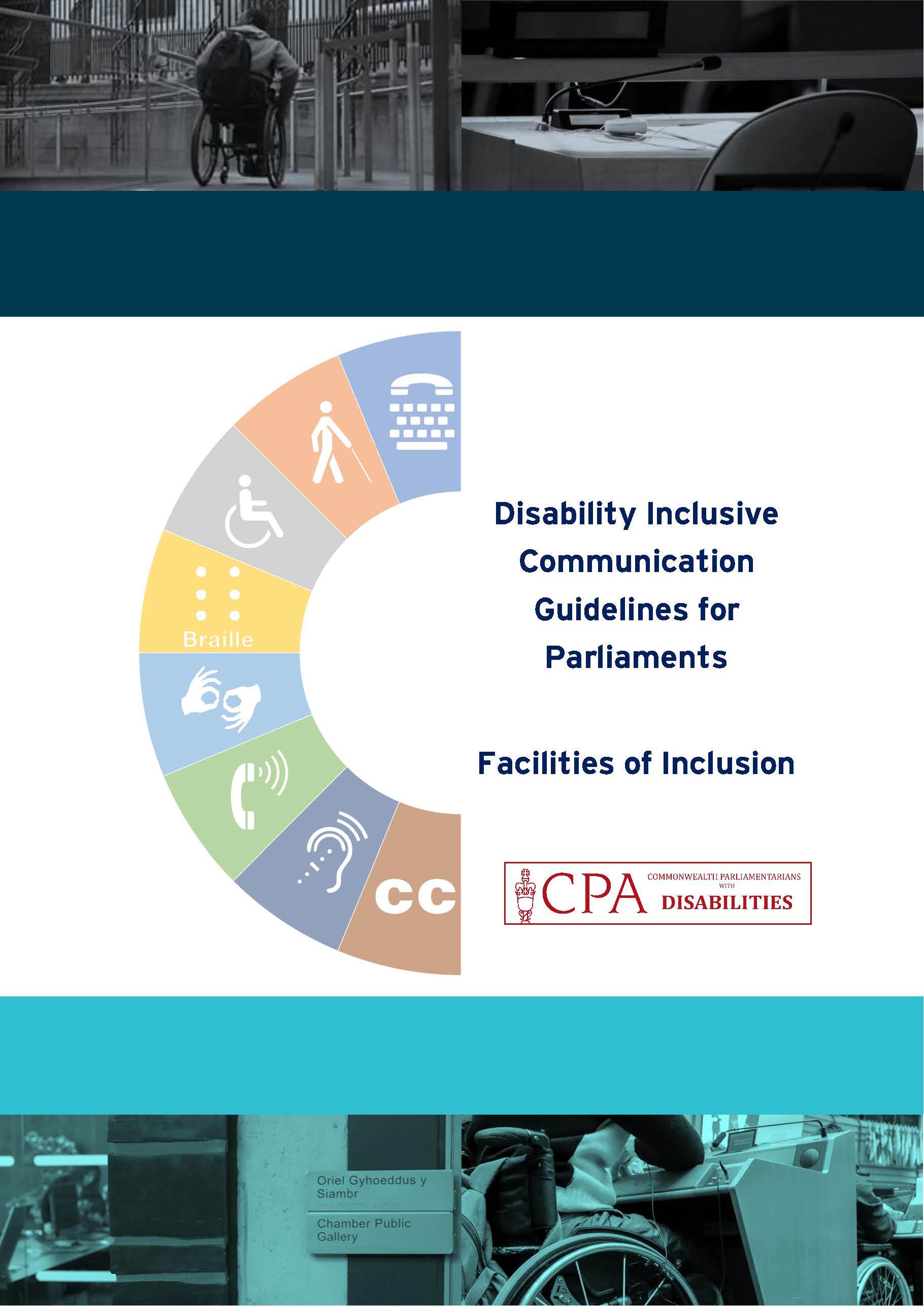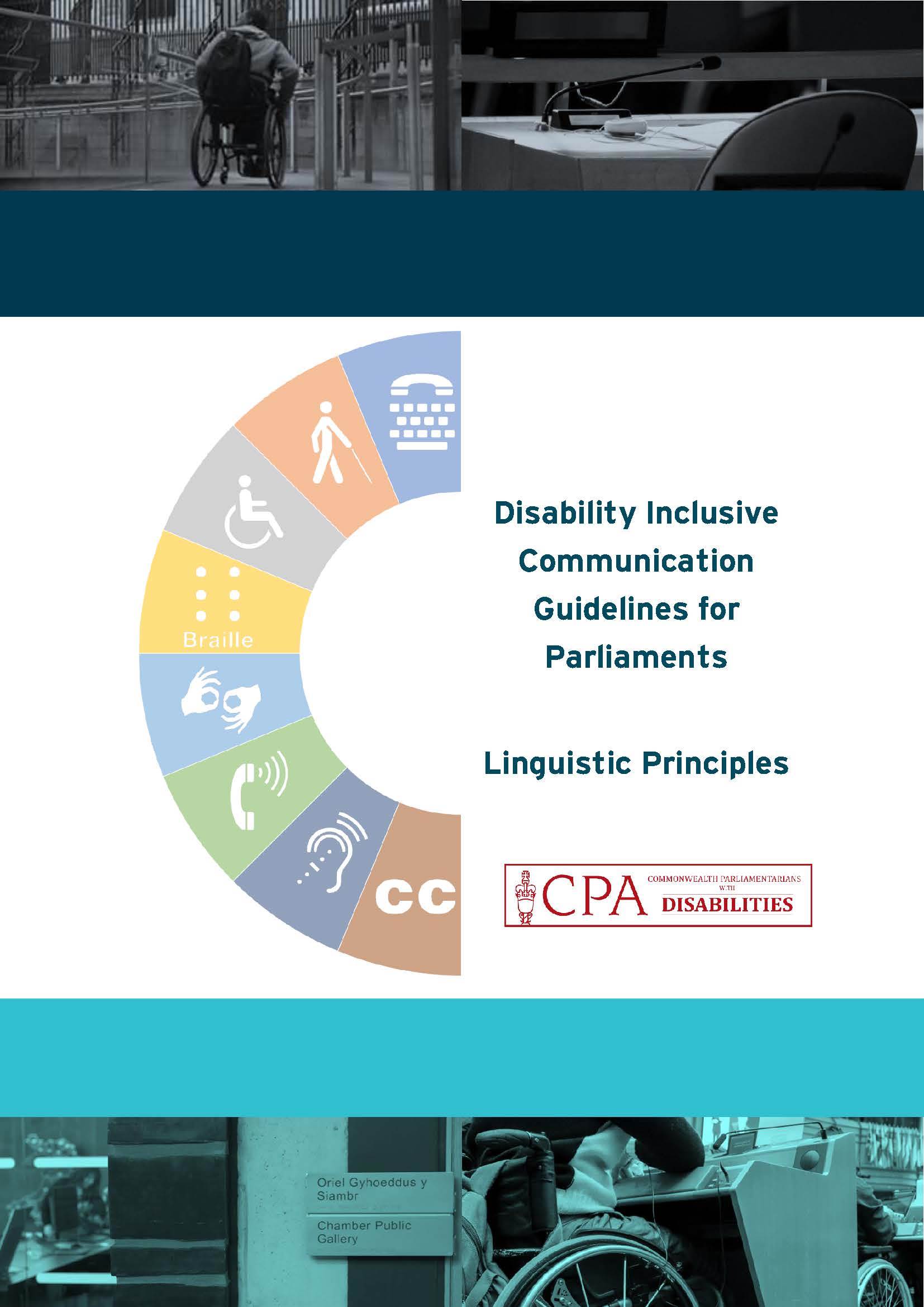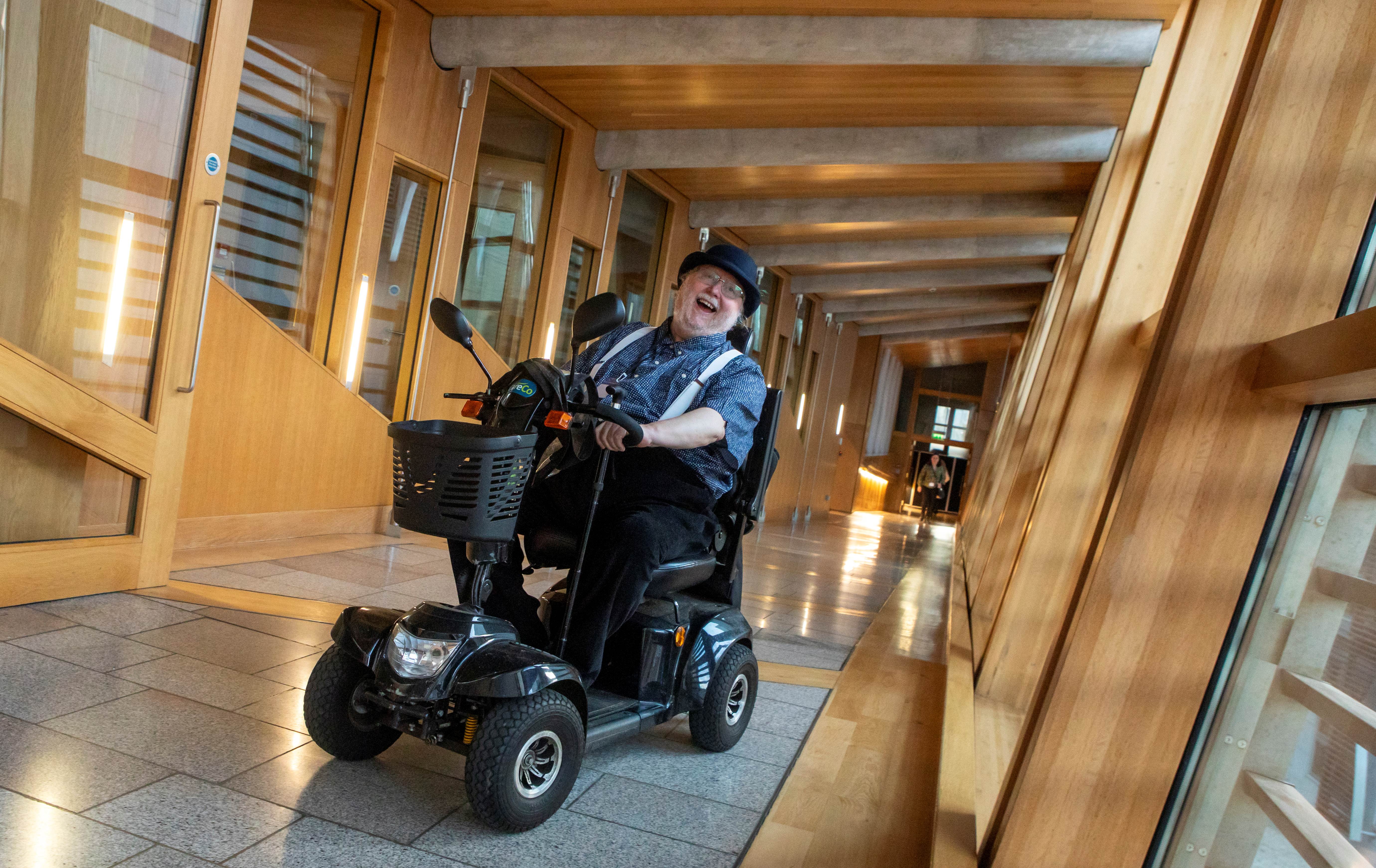
How to host a disability outreach event: the Scottish Parliament’s inaugural Disability Summit
In November 2023, the Scottish Parliament hosted its first ever Disability Summit to mark International Day of Persons with Disabilities. The hybrid summit was hosted by Deputy Presiding Officer Annabelle Ewing MSP, on behalf of Jeremy Balfour MSP and Pam Duncan-Glancy MSP, the Convener and Deputy Convener of the Cross-Party Group on Disability.
In this article, Jeremy Balfour MSP shares his experience of convening the summit, detailing why the Cross-Party Group wanted to host it, how the organisers made it as accessible as possible and lessons for other Parliaments looking to host a successful disability outreach event.
About a year ago, there was a conversation between myself and a number of others who sit on the Scottish Parliament Cross-Party Group on Disability in which we decided that there should be a summit at The Scottish Parliament to mark the United Nations International Day of Persons with Disabilities. We recognised that there had never been such an event to celebrate disabled people across Scotland by opening up their national Parliament to them. After months of careful planning, the Scottish Parliament’s first ever Disability Summit took place on Saturday 25 November 2023, and what a day it was.
We were clear that the focus of the day should be on celebration. Too often events that bring together large numbers of disabled people focus on the negatives and can feel like glum affairs. This is of course understandable as disabled people face a myriad of problems that have historically been ignored. However, we were keen that we focus on the monumental progress that has been made in recent years, while recognising that there is still a long way to go. In that vein, the tone of the day was upbeat, thankful, and celebratory. Speakers spoke about achievements and triumphs, there was live music from some talented performers and excellent food and drink were enjoyed. It really did have the feel of a party.
Due to the high levels of interest in the event, we could not accommodate everyone who wanted to take part in the Parliament itself. We therefore ensured that there was a high quality, interactive, online way that people could take part. They were encouraged to submit questions for the panels which were read out in the chamber. During comfort breaks and while in-person attendees were being situated, those online were given virtual tours of the Parliament which gave them a good idea of the layout of the building where so much happens that directly affects their lives. I can personally attest that the online experience was excellent as, due to a scheduled hospital stay, I was watching along. While it was obviously disappointing not to be there in person, I thoroughly enjoyed myself and learned a lot from the speakers and panellists.
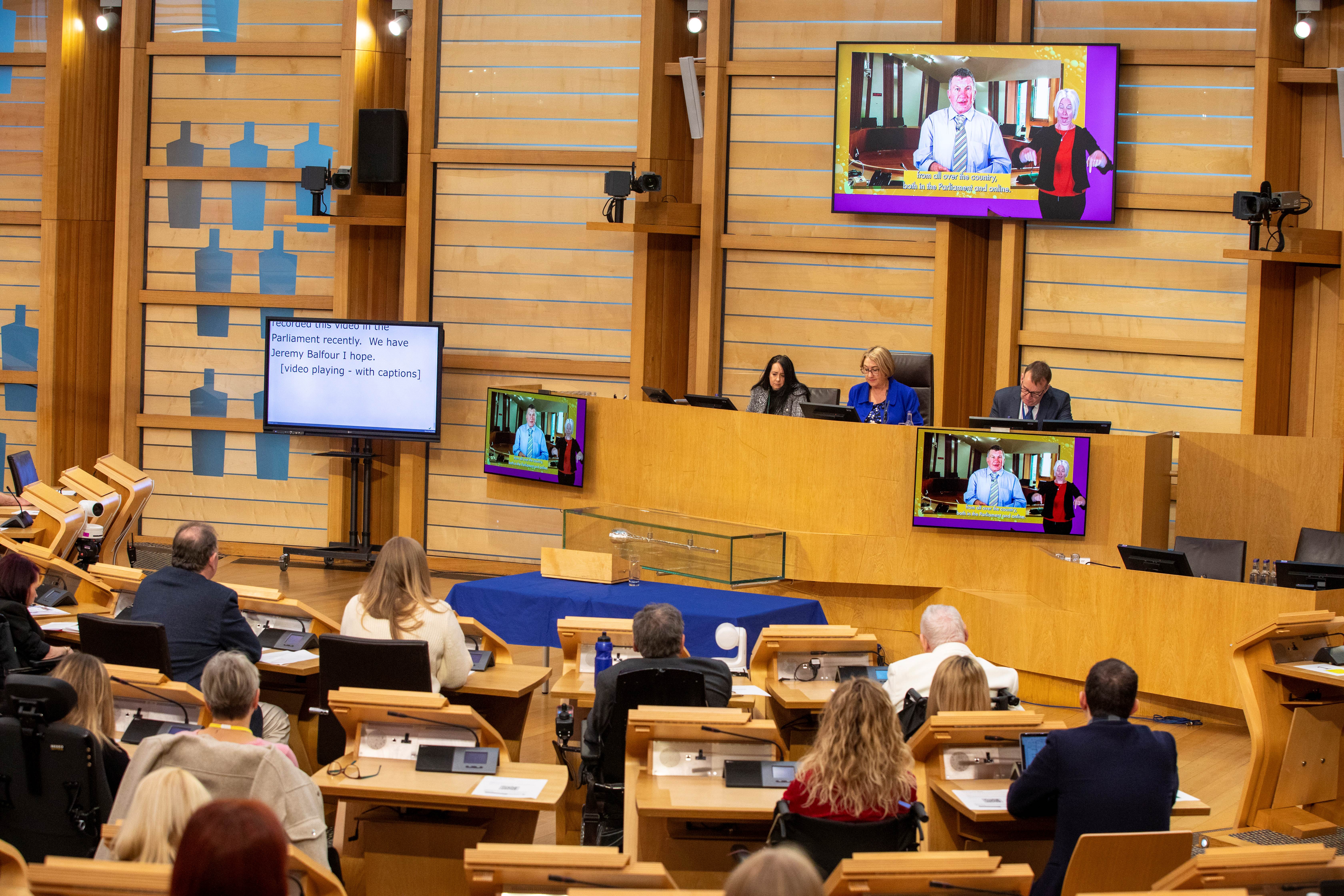
Jeremy Balfour MSP delivers a virtual address to attendees at the Summit. Accessibility measures included live sign language interpretation and a screen with a live, large-text transcript. Photo credit: Katielee Arrowsmith, Scottish Parliament.
It was incredibly important to us that we had a wide range of people from across the whole country represented in-person at the summit. There are a wealth of different experiences and perspectives in Scotland that we wanted to ensure had a voice on the day. In order to guarantee this, we did our best to spread the numbers between the Scottish electoral regions so that there were roughly even numbers from the whole country.
Those who joined in person were treated to a delicious lunch on arrival in the Garden Lobby before moving into the debating chamber for the plenary session. It was a very powerful sight to see the benches of our national Parliament filled with people with disabilities. Historically, people with disabilities have been held back and kept out of places where decisions get made, but on that day they were welcomed in. What an incredibly special moment.
The speakers in the chamber were fantastic. Baroness Tanni Grey-Thompson was incredibly inspiring, speaking about the need to look back at how far we have come as well as looking to the future progress that needs to be made. She also made reference to the work that must be done to make public transport accessible for all, and her dream that one day she can make use of trains without needing extra assistance.
Dr Jim Elder Woodward OBE spoke powerfully on the need to include people with disabilities in policy discussions. The only way to get an accurate idea of the complexity of life with a disability is to consult those who have lived experience. As Jim said, there should be nothing for us without us.
Finally, we were treated to a panel discussion moderated by Deputy Presiding Officer Annabelle Ewing MSP and including members from all five major parties represented in the Scottish Parliament. It was amazing to hear such a constructive discussion that set aside party and political agendas and was focused on the needs of disabled people.
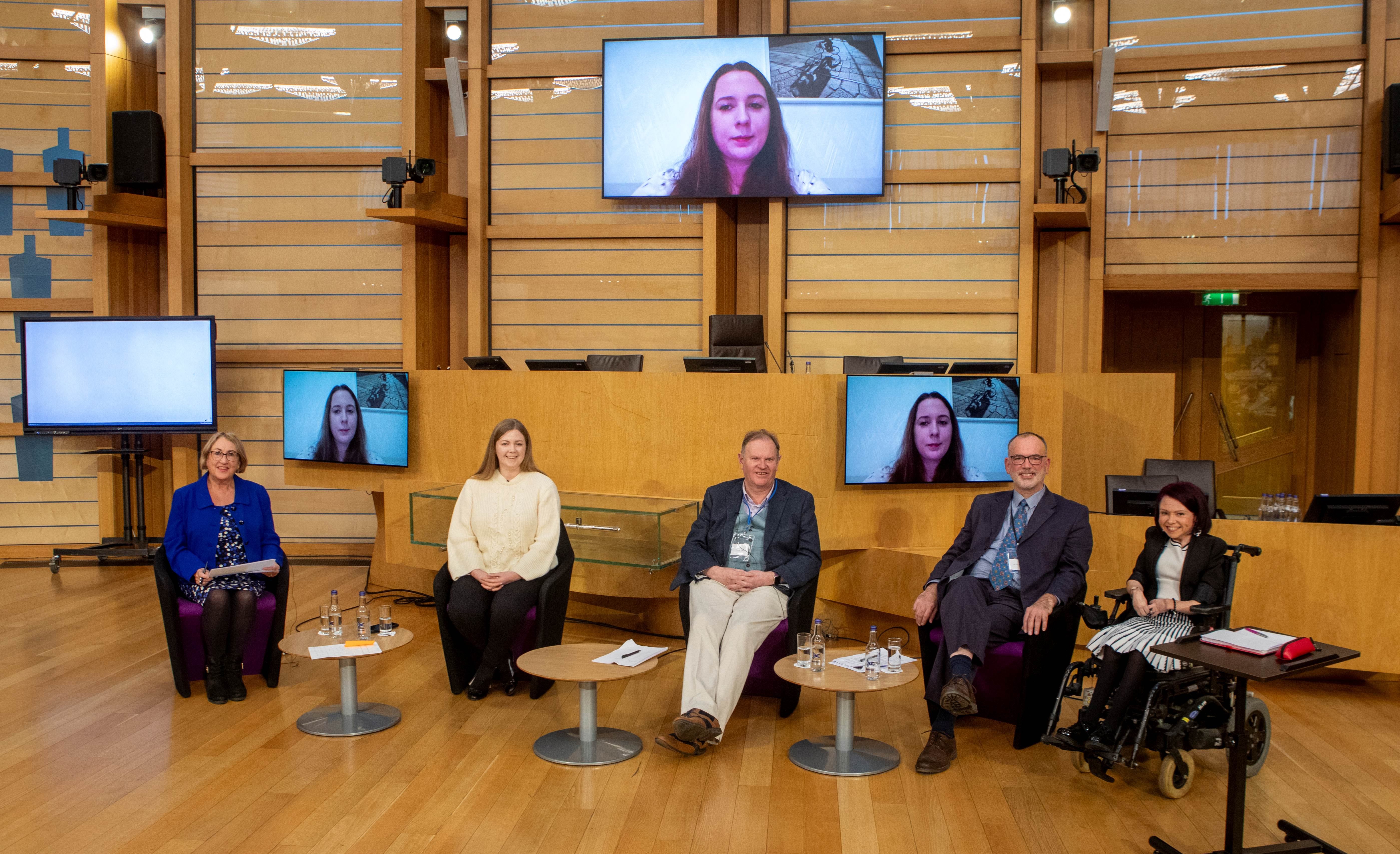
The summit programme included a cross-party panel discussion, chaired by Deputy Presiding Officer Annabel Ewing MSP, where panellists shared their experiences as disabled persons. Photo credit: Katielee Arrowsmith, Scottish Parliament.
The summit was an incredible success. We are so happy with how the day went and we are already looking forward to holding the second biennial summit in two years’ time.
If other Parliamentarians from across the Commonwealth are looking to run a similar event, I could not recommend it highly enough. I would have a couple of specific recommendations for them to make the process as easy as possible.
Firstly, and most importantly, it is essential to get the buy in from the senior parliamentary managers and Presiding Officer. We were so fortunate to have the full support of those who run the Parliament. They were so helpful in organising the logistics, scheduling, catering and press and without this help, the event would not have been able to go ahead.
Secondly, do not ignore all the small details of the event. Inviting and accommodating over 100 people with disabilities is no small feat. We made certain that we had planned how to get people with accessibility needs around the Parliament and we ensured that the menu for lunch and our drinks reception were accessible to all those who were invited. The registration process was made accessible to as wide a range of abilities as possible and we created inclusive promotional content such as videos with sign language interpretation and easy read documents. All of this meant that the day went smoothly.
And finally, make it a priority for the day to be fun and enjoyable. Far too often, events for people with disabilities can focus so much on access that they forget that it is meant to be a fun day. By making celebration one of your key objectives, you can organise a day that people come away from with a real sense of fun.
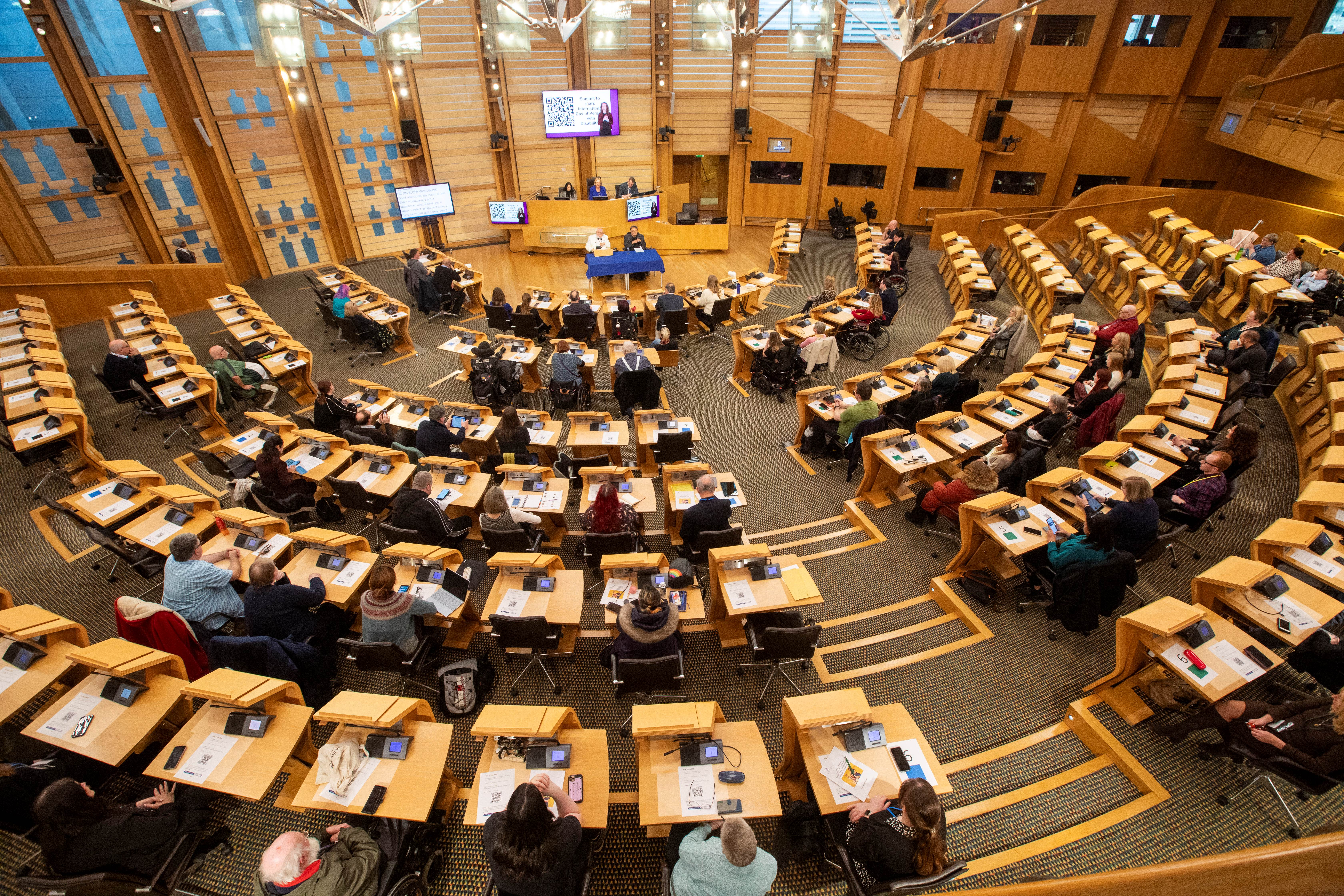
A full debating chamber in the Scottish Parliament on the day of the Disability Summit. Photo credit: Katielee Arrowsmith, Scottish Parliament.

